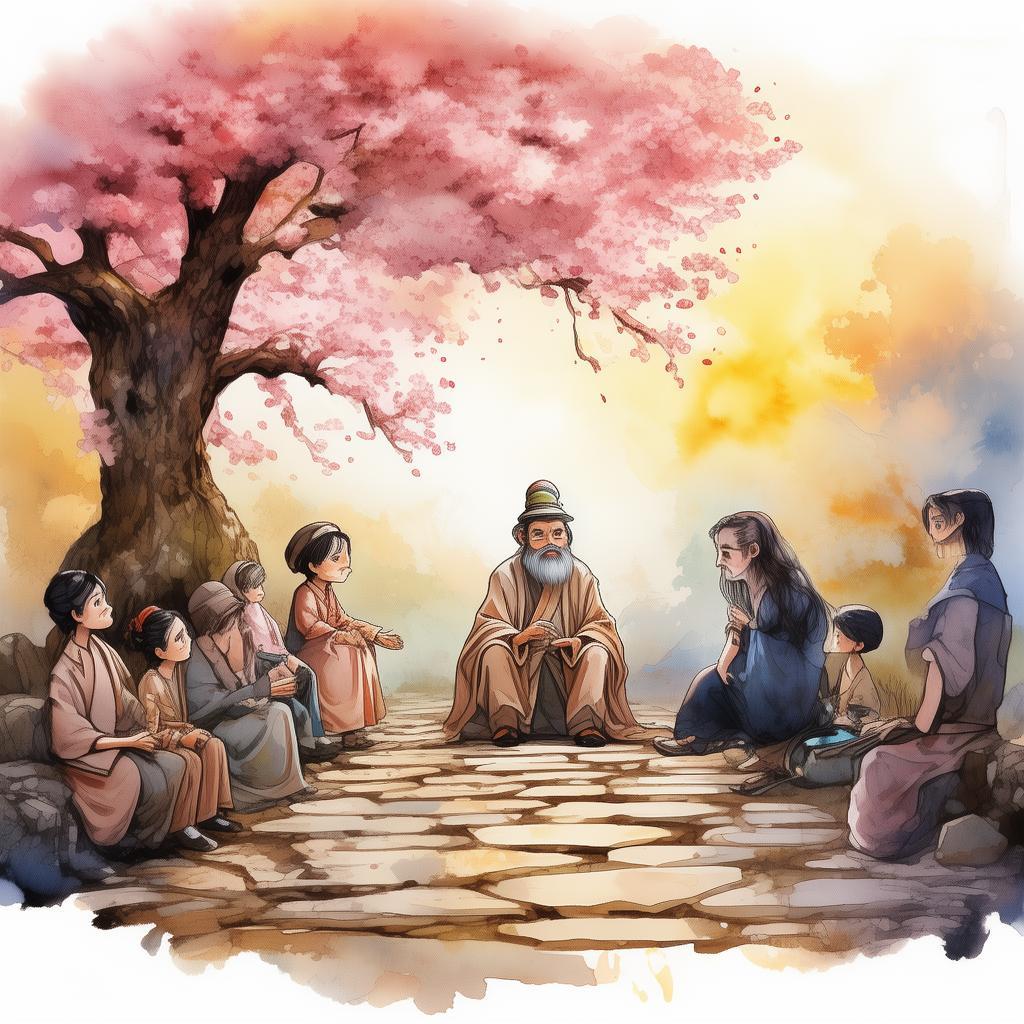Whispers of the Pen: A Tale of Penitence and Redemption
In the heart of ancient China, amidst the bustling streets of a bustling city, there lived a master calligrapher named Lin. His name was whispered in reverence, for his brush danced with a life of its own, creating works of art that seemed to hold the very essence of the characters he wrote. His most treasured possession was a mirror, not of glass, but of paper, etched with the character for "whisper" in elegant strokes.
Lin's story began many years ago, when he was a young boy, full of dreams and ambitions. He had a gift for calligraphy, a gift he believed was a divine calling. However, his path was not without its trials. His father, a harsh and ambitious man, demanded perfection in everything, and Lin's calligraphy was no exception. One day, in a fit of frustration, Lin carelessly brushed his father's prized sword, destroying it beyond repair. His father's fury knew no bounds, and in a fit of despair, Lin fled the home, vowing never to return.

Years passed, and Lin's talent grew, but the shadow of his past remained. He became a wandering calligrapher, his art a reflection of his soul's turmoil. His mirror, which he had kept hidden, became a symbol of his innermost thoughts and regrets. Each character he wrote seemed to echo the whispers of his past, a constant reminder of the man he had become and the man he could have been.
One day, Lin found himself in a small village, where the villagers were preparing for a festival. The festival was a time of joy and celebration, but Lin felt a deep sense of sorrow. He wandered through the village, his heart heavy, until he stumbled upon an old temple. Inside, he found an ancient scroll, covered in dust and cobwebs. Curiosity piqued, he carefully unrolled it and discovered it was a scroll of calligraphy, filled with the character for "whisper."
As Lin read the scroll, he felt a strange connection to the words. They spoke of forgiveness, of the power of letting go, and of the healing that comes with redemption. The scroll spoke of a calligrapher who had made a grave mistake and sought forgiveness through his art. The calligrapher's journey mirrored Lin's own, and he realized that his past was a whisper calling out to him, seeking to be heard.
Lin decided to stay in the village, using his talent to create a series of calligraphy works that would tell his story and the story of the scroll. He wrote of his father's sword, of his flight, and of the years he had spent wandering. But most importantly, he wrote of his journey towards forgiveness, of the pain and the healing that had come with it.
As the festival approached, Lin's works were displayed for all to see. They were a testament to the power of art to heal and to the strength of the human spirit. The villagers were moved by his story, and they began to understand the true meaning of forgiveness.
On the night of the festival, Lin stood before his father, who had followed him to the village. The elder man, now old and frail, looked at his son with eyes that held the weight of years. Lin took a deep breath and began to write on the temple wall, the character for "whisper" in the center. As he wrote, he felt the burden of his past lifting, and he whispered to his father, "I forgive you."
The elder man's eyes filled with tears as he saw the character for "whisper" on the wall. He stepped forward and took Lin's hand, and together, they walked away from the temple, leaving the past behind them.
Lin's story spread far and wide, and his mirror became a symbol of hope and redemption. The character for "whisper" took on a new meaning, not just a reminder of the past, but a testament to the power of forgiveness and the healing of the soul.
And so, Lin found peace, not just in his own heart, but in the hearts of those who saw his journey. His art, once a reflection of his soul's turmoil, now became a beacon of hope, a whisper of redemption to all who sought it.
✨ Original Statement ✨
All articles published on this website (including but not limited to text, images, videos, and other content) are original or authorized for reposting and are protected by relevant laws. Without the explicit written permission of this website, no individual or organization may copy, modify, repost, or use the content for commercial purposes.
If you need to quote or cooperate, please contact this site for authorization. We reserve the right to pursue legal responsibility for any unauthorized use.
Hereby declared.









